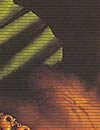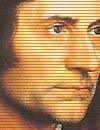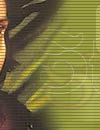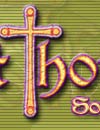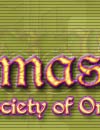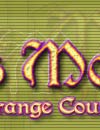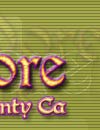 Fr. Hugh Barbour
Fr. Hugh Barbour
(photo of Fr. Barbour coming soon)
|
Reprinted From the Diocese of Orange Bulletin April 1996
Article by Julie Strauss
Norbertine Father Hugh Barbour, 36, is Prior of St. Michael’s Abbey in Silverado. The gentle, good-humored, erudite cleric was ordained for the Order in 1990, and presently teaches philosophy. He has a license in Patristic Theology (Theology of the Fathers) and a doctorate in philosophy. In 1991, Fr. Hugh was appointed Censor Librorum for the Diocese by Bishop McFarland, a unique honor for such a young Priest. He recently discussed his work as Censor for the Diocese, and about growing up the son of an Episcopalian priest.
Julie Strauss: What is a Censor Librorum?
Fr. Hugh Barbour: If a person were to write a book or pamphlet and wanted it checked for doctrinal integrity, he would go to the Censor. Such a check might be required by Church law, but often today it is not strictly required.
Writers present their work to a publishing house which either accepts or rejects it. If the publishing house is interested in getting a Censor’s approbation, they contact him. All a Censor can do is say that the work is either conforming to Catholic teaching or not. If the Censor approves and the Bishop agrees, the Bishop gives the work an Imprimatur. This doesn’t mean that the Censor or Bishop agree with the opinions expressed, only that the work is free of doctrinal error.
For example, someone could write a book on the history of the Church. The Censor might not agree with how the author depicts a certain historical figure, but nonetheless approve it is not in contradiction with the official doctrine of the Church.
Or suppose someone writes a devotional book on the Passion of Our Lord. In it he writes that when Jesus said, "My God, why have you abandoned me?" He was completely confused and didn’t know who He was or what He was doing. This is doctrinal incorrect. He was suffering terribly, but that doesn’t mean He lost sight of His mission. That’s when the Censor must say, "Let’s tidy this up a bit." JS: What types of works does a Censor review?
An ecclesiastical Censor reviews anything published of a general religious and/or theological nature. A little prayer book for the faithful containing the Order of the Mass, for example, would have to have a Censor’s approval.
Lay people who write religious books today are not automatically required to get approval, and most don’t bother anyway. However, literature that is published by clergy generally does.
JS: Should the laity refuse to read works without an Imprimatur?
HB: While there’s no prohibition in the law on reading such materials today, there is a moral issue involved when people read things they may not be able to handle—things that are unnecessarily confusing or dangerous to their faith. People have to judge prudently.
For example, there’s no law forbidding poorly catechetized Catholics from reading the literature of the Jehovah’s Witnesses, but morally speaking if would be foolish for them to do so before they learn their own faith.
JS: Do you find there are may poorly catechetized Catholics in the Church today?
HB: Yes. Young people haven’t been well catechetized; often they can’t give even simple descriptions of basic concepts of the Faith such as the Holy Trinity. Yet, through the influence of modern culture, they are carefully and consistently taught that religion is fundamentally a matter of indifference. The constant refrain is, "Well, that’s your opinion," to which I reply, "That’s not an objection. Tell me, was what I said true or false?" It is not possible that contradictory views of God can be true. It is not true for anything else in our lives.
JS: Does a lack of understanding of the Faith affect a person’s morality?
HB: If a person doesn’t have clear things he believes about God, then when life gets a bit difficult, which it does for all of us, he finds it difficult to hang his thoughts on any particular truth. It, in turn, acts as a justification for his moral excesses or defects.
JS: Today, you work as a Censor for the Roman Catholic Bishop of Orange, but you were not always Catholic.
HB: No, I was born into the Episcopal Church. In fact, my father is an Episcopalian priest. He was ordained February 16, 1960, and I was born May 16, 1960. So I like to think that I was there for his ordination.
JS: How did you enter the Catholic Church?
HB: Let’s just say that I was received into the Catholic Church at a young age—11. Most stories nowadays are about conversions to the Catholic faith from the Evangelical tradition, but the conversion of an Episcopalian or Anglican is often different from that. The Episcopalian Church has a broad spectrum liturgically and theologically.
Dad was part of the Anglo-Catholic party, a sort of revival of Catholic teaching and practice that occurred in the 19th century. It rediscovered a lot of Catholic practices and teachings. We were not Protestants in the classic sense, but more like Catholics in that we accepted the hierarchical Church, the sacraments, liturgical worship and so forth.
My becoming Catholic is really due to my father. It’s not so much a rejection of what he taught me, but more of a completion. He probably views it that way, too. His parishioners often say to him, "How did your son become a Catholic Priest?" Dad replies, "Well, I taught him too well!" My Catholic faith was, for me, a perfection of what I’d been given. I’m grateful for my faith, and I marvel at it.
JS: Why is that?
HB: The Anglican church has changed a great deal since my childhood…The Catholic Church is faced with the same currents—such as feminism and opposition to the Magisterium of the Church—but we have something that others don’t have, the continuing guaranteed guidance of the Church’s teaching authorities, the Pope and the Bishops.
If you look at it from an historical point of view, it’s really a miracle. The Church has so much pressure, made up of the men and women who are the products of their age, and is still somehow able to maintain certain truths without flinching. And the Church does it eloquently, beautifully and gracefully, even though often it is not popular. Nobody is ever entirely satisfied with every little detail, but that is a sign that the Church really is a divinely established institution. It isn’t a slave to every passing cultural movement.
JS: What did your Dad think of your Roman Catholic religious training?
HB My father is a lot more respectful of the Pope than a lot of Catholic clergy are. When I was getting my doctorate in Rome, Dad attended the public defense of my thesis. We were also able to attend the Holy Father’s morning Mass in his private chapel. I was the first concelebrant next to the Pope. Afterwards, the secretary put us at the end of the line of people being presented to the Pope. The Pope looked at my father and said, [in a deep voice] "Thank you very much!" and then he hit me lightly on the head and said "Good man!" It was a nice thing to say. Dad really liked that.
JS: What influence did your mother have on your religious upbringing?
HB: She was a devout woman but not too concerned about theological matters. I remember when I first entered St. Michael’s Abbey, she’d come to the Sunday Mass (seminarians get once a month visitations) and she would insist on receiving Communion. I’d say, "Mom, you’re not supposed to," and she replied, "Look, I believe just exactly what you believe and I know what Catholics are like nowadays." She had Catholic leanings but they weren’t of the speculative sort. She actually did end up receiving last rites from a Catholic Priest. Anyway, she’s happy to be a Catholic now since everybody who gets to the next world sees just how things really are [laughs heartily].
JS: And you chose to become a Norbertine. Explain the Norbertine vow of "Daily Conversion of Ways."
HB: Our way of life is a continual daily pursuit of perfection according to the grace of God in a way that is following Christ more closely. We try to follow Him by a regimen which detaches one more easily from those things which might be obstacles to our union with God. While religious life certainly simplifies your life, it doesn’t necessarily make it any easier.
JS: Do you believe America is a religious country?
HB: We’re more religious than other countries, but not necessarily more open to the truth. There is generally more respect for religion as an institution, for clergy and for churchgoing. God and religious motivations are frequently mentioned in this country whereas it would never be mentioned in other countries. Even progressive politicians will say, "God bless you" or "God bless America." There is more overt disharmony between Church and State in modern European countries that here where we have a kind of soft anti-clericalism. We marginalize, minimize—the "Sister Act" approach to Catholicism. The lines are not drawn as clearly for us. We like to pretend that, because we have freedom of religion, everything is fine...
|

